Nội Dung Chính
Page 127
Present continuous: affirmative and negative
| Affirmative | Negative |
| I'm studying. He's studying. We're studying. | I'm not studying. He isn't studying. We aren't studying. |
We make the affirmative form of the present continuous with the verb be and the -ing form of the verb.
I'm looking at my English dictionary.
Fatma is speaking to the teacher.
We're learning about life in Thailand.
You're doing a difficult science question.
To make the negative form, use the verb be plus not and the -ing form of the verb.
In spoken or informal written English, we use short forms in both the affirmative and the negative.
I'm reading the notes.
He isn't listening to his friend.
They aren't doing their homework.
Spelling Rules
With the majority of verbs: add -ing.
watch → watching check → checking
play → playing eat → eating
With verbs that end in -e: remove -e and add -ing.
revise → revising have → having
move → moving make → making
With verbs that end in vowel + single consonant: double the consonant and add -ing.
sit → sitting swim → swimming
run → running get up → getting up
Present continuous: questions
| Questions | Short answers | |
| Affirmative | Negative | |
| Am I listening? Are you listening? Is he listening? Is she listening? Is it listening? Are we listening? Are you listening? Are they listening? | Yes, I am. Yes, you are. Yes, he is. Yes, she is. Yes, it is. Yes, we are. Yes, you are. Yes, they are. | No, I'm not. No, you aren't. No, he isn't. No, she isn't. No, it isn't. No, we aren't. No, you aren't. No, they aren't. |
To make the question form, invert the verb be and the -ing form.
Am I sitting here?
Is Alex playing football?
Are you checking the answer to that question?
What are we studying?
Where are those students going?
We make short answers with the verb be only, without the -ing form.
Are you learning Japanese? No, I'm not.
Is Selin doing an exam? Yes, she is.
Are they finishing their homework? No, they aren't.
Present continuous and present simple
Usage
We use the present continuous to talk about actions in progress. We often use it with words and phrases like at the moment, now or today.
Our teacher is speaking English now.
They're watching a video in class today.
Pavel and Tomas aren't concentrating at the moment.
Are we making notes from this book now?
We use the present simple to talk about routines or repeated actions. We often use it with words and phrases like always, usually, normally, often, sometimes, never, every day or every Friday.
He gets the bus to school every day.
I always get up at 7.00.
They don't usually help with the housework.
Do you play football every Saturday?
Note that there are some verbs (stative verbs) which we don't usually use in the continuous form. These include: understand, know, think, like, love, hate and want.
I like history and art. NOT I'm liking history and art.
I know the answer. NOT I'm knowing the answer.


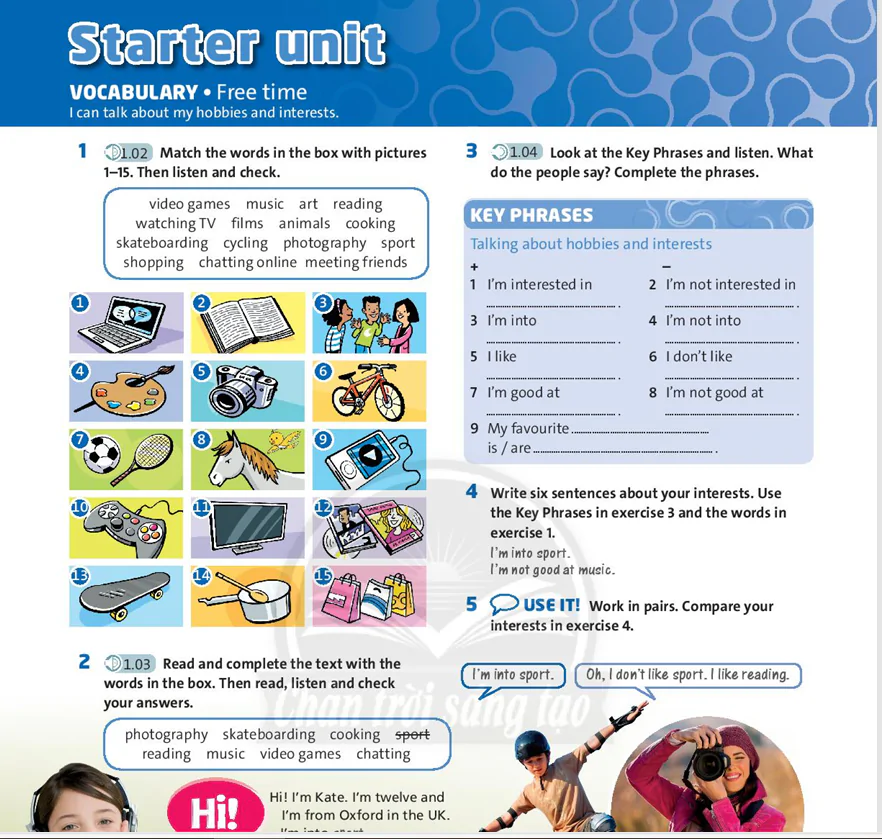
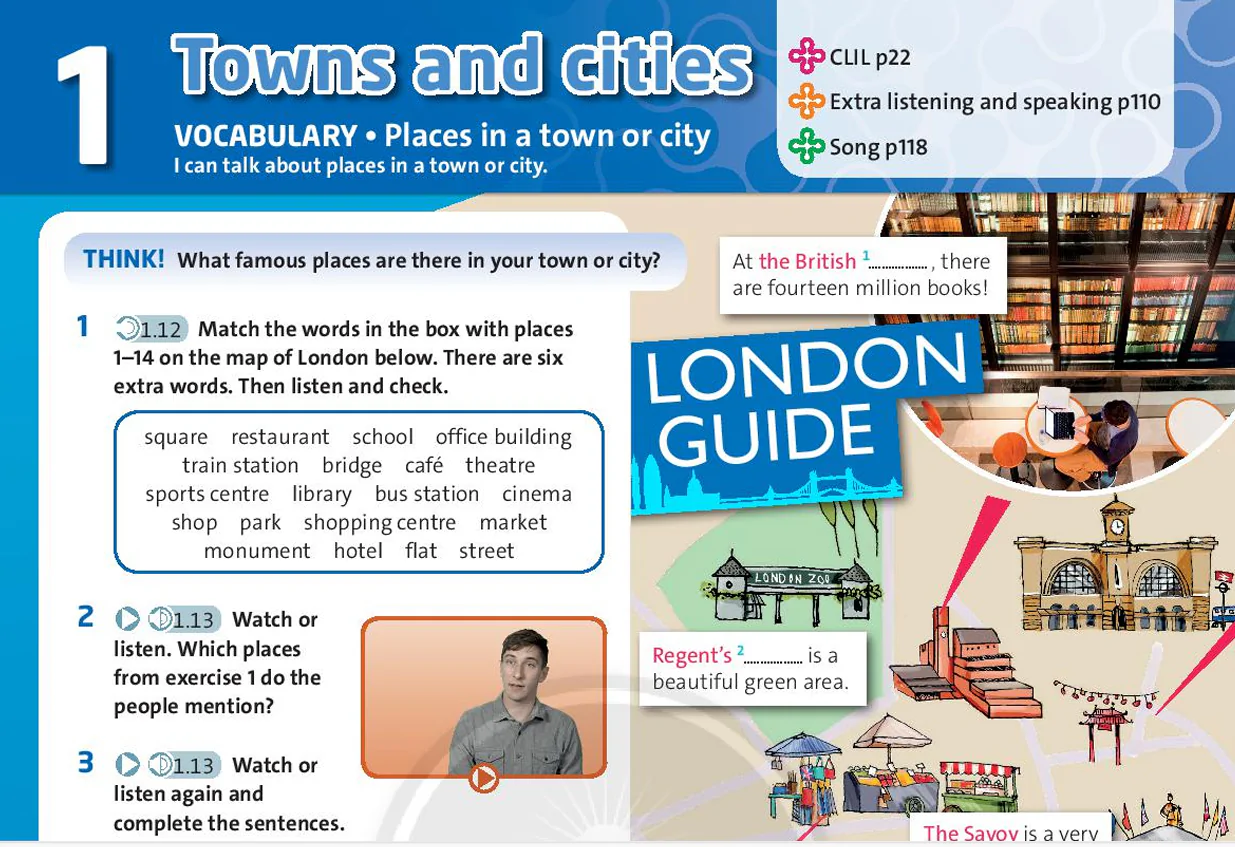
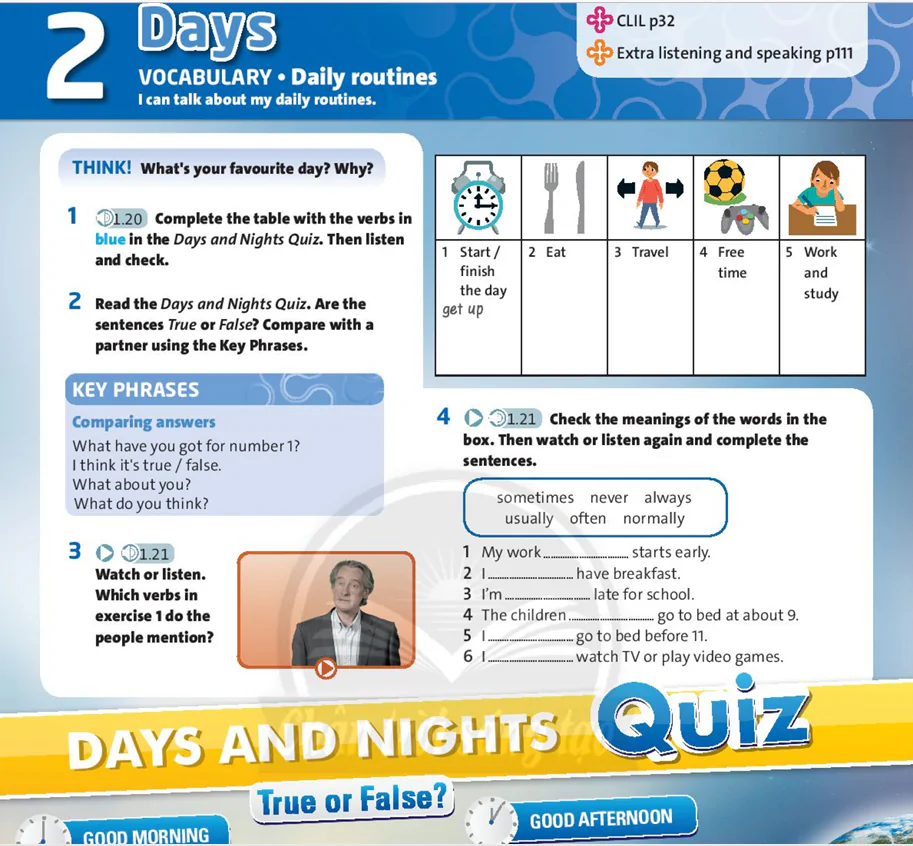
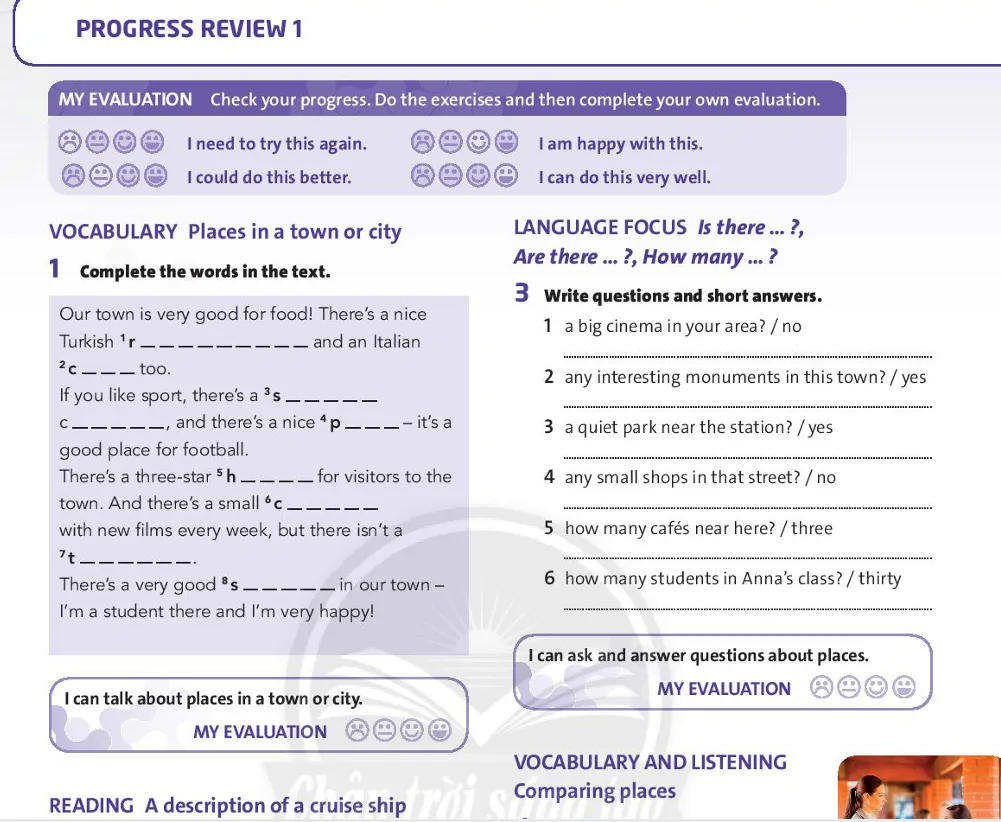
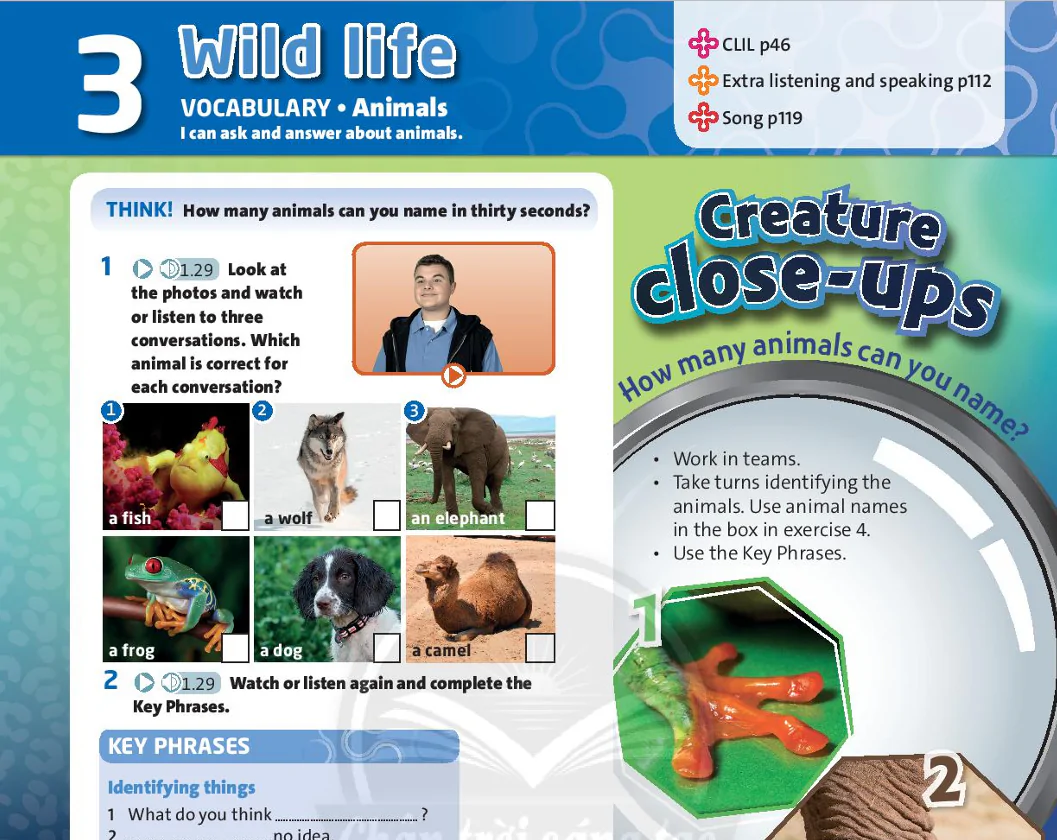

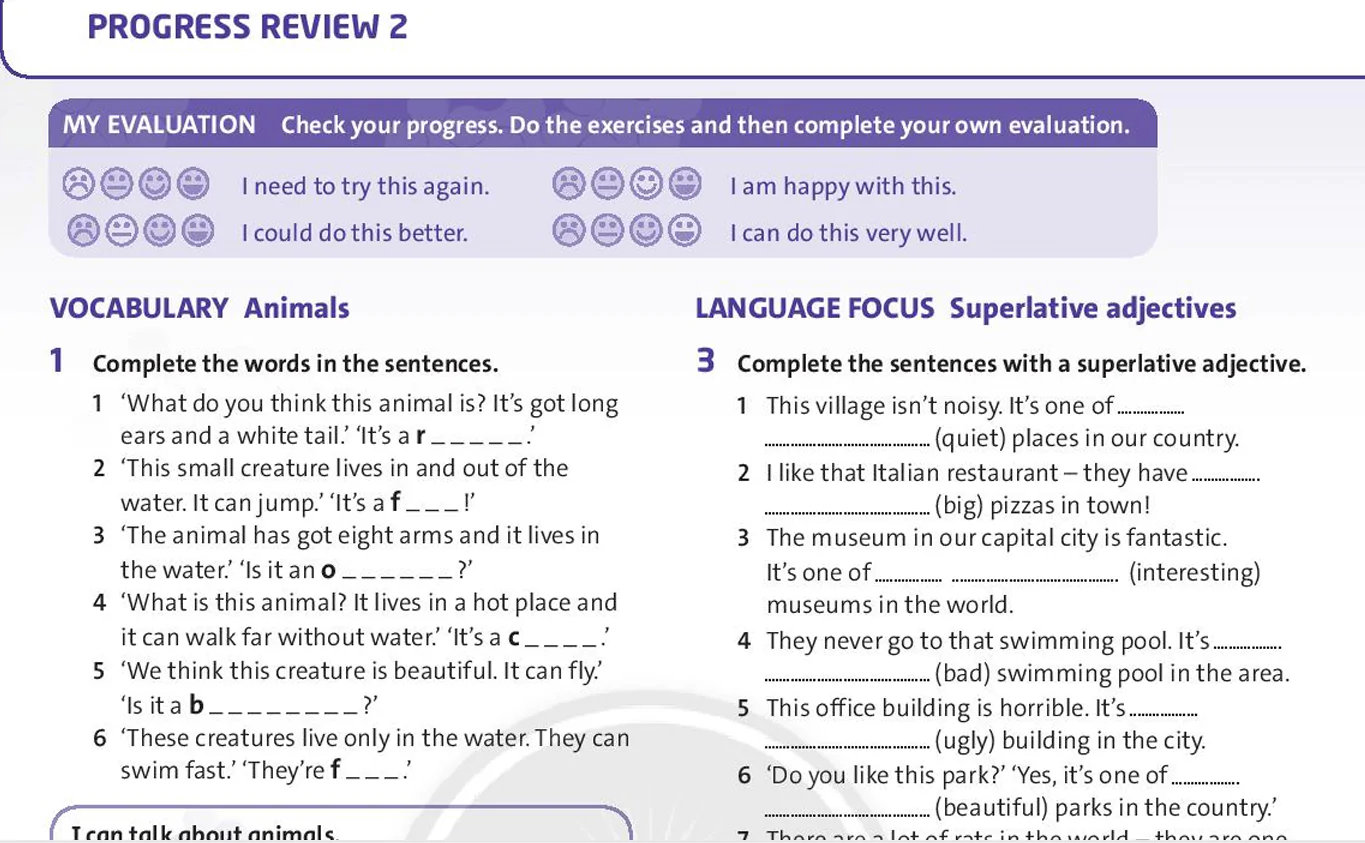
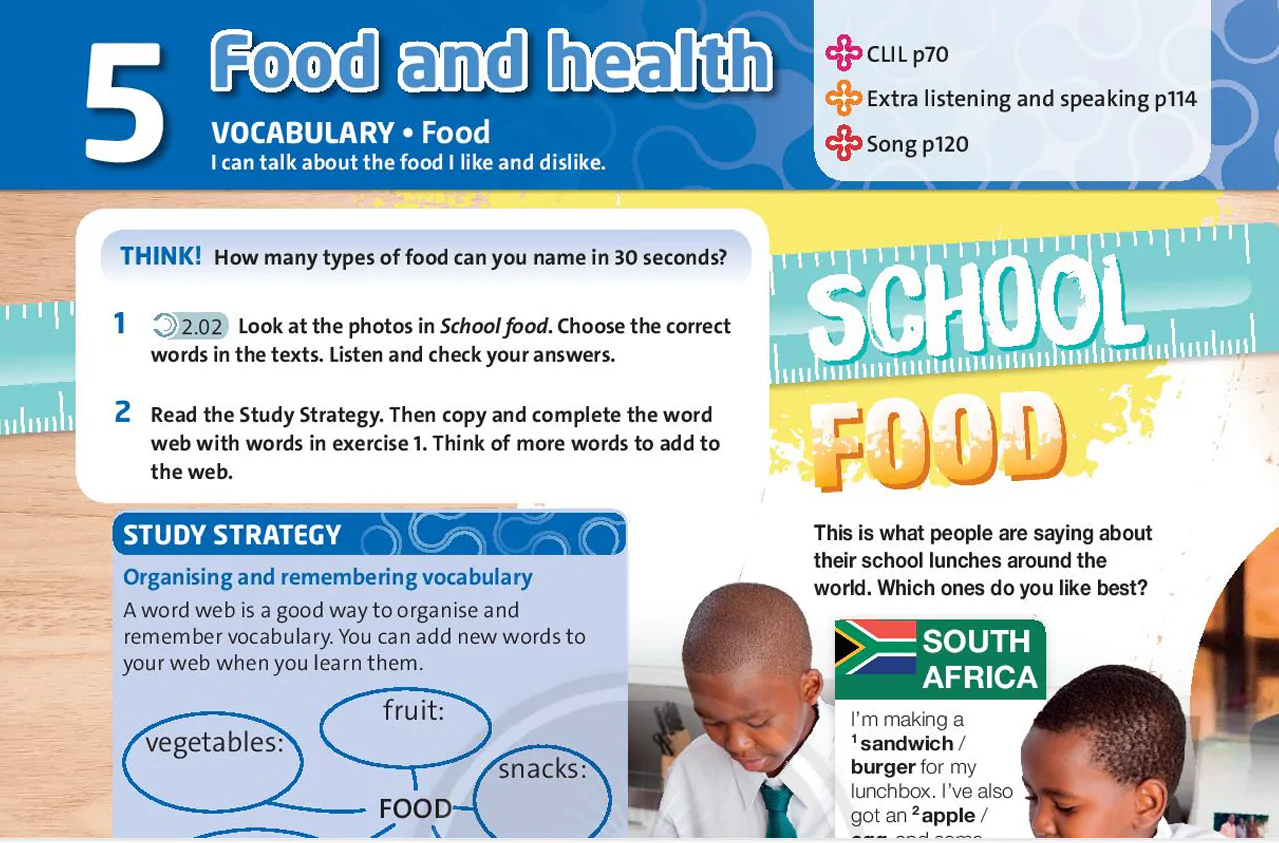

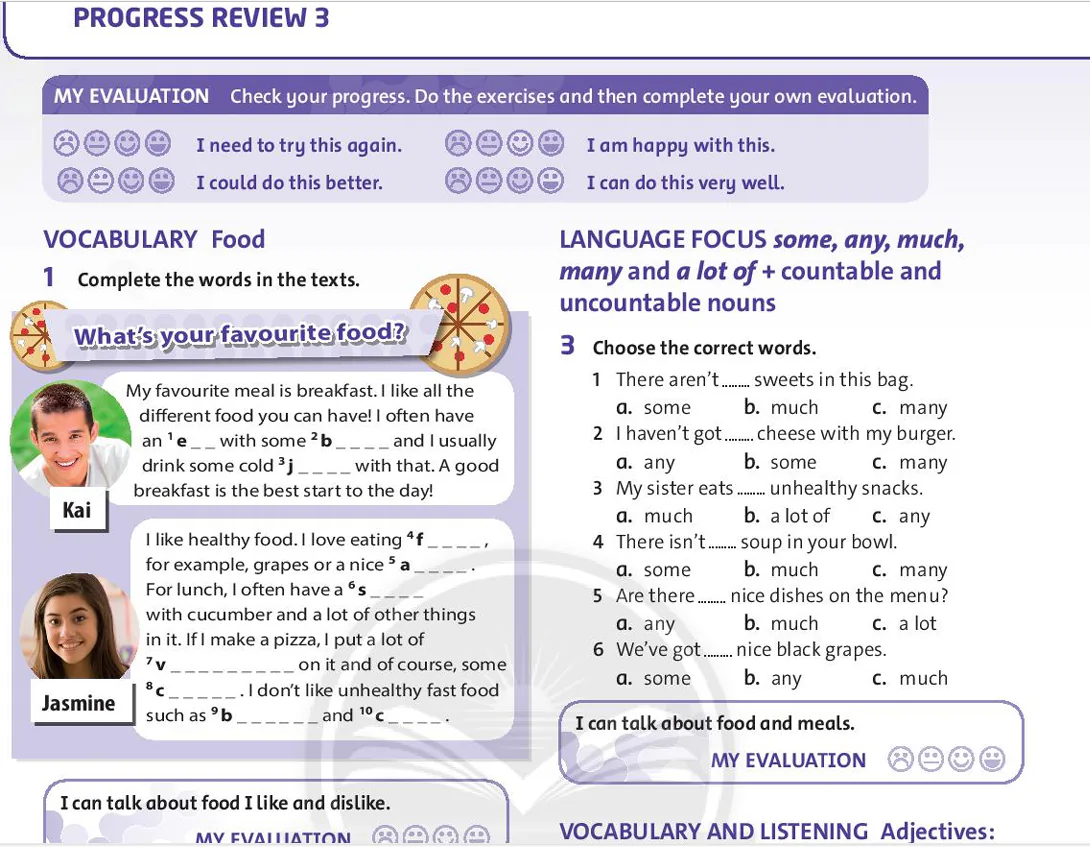
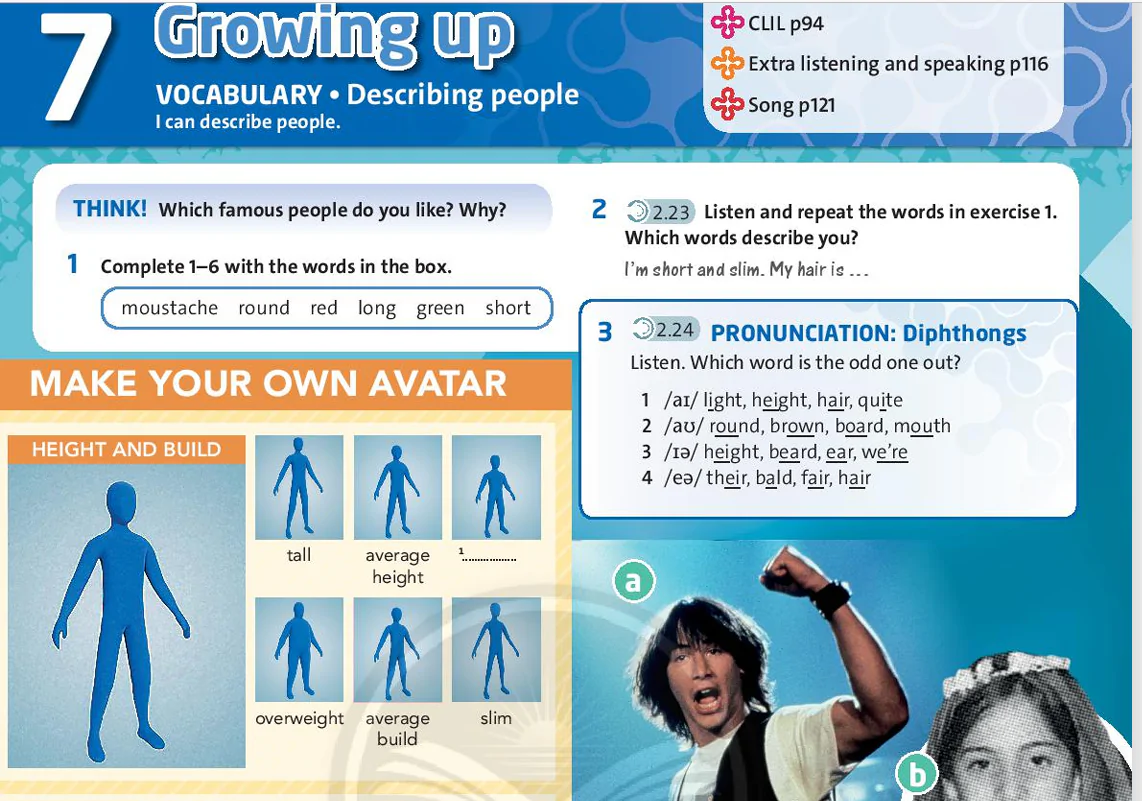

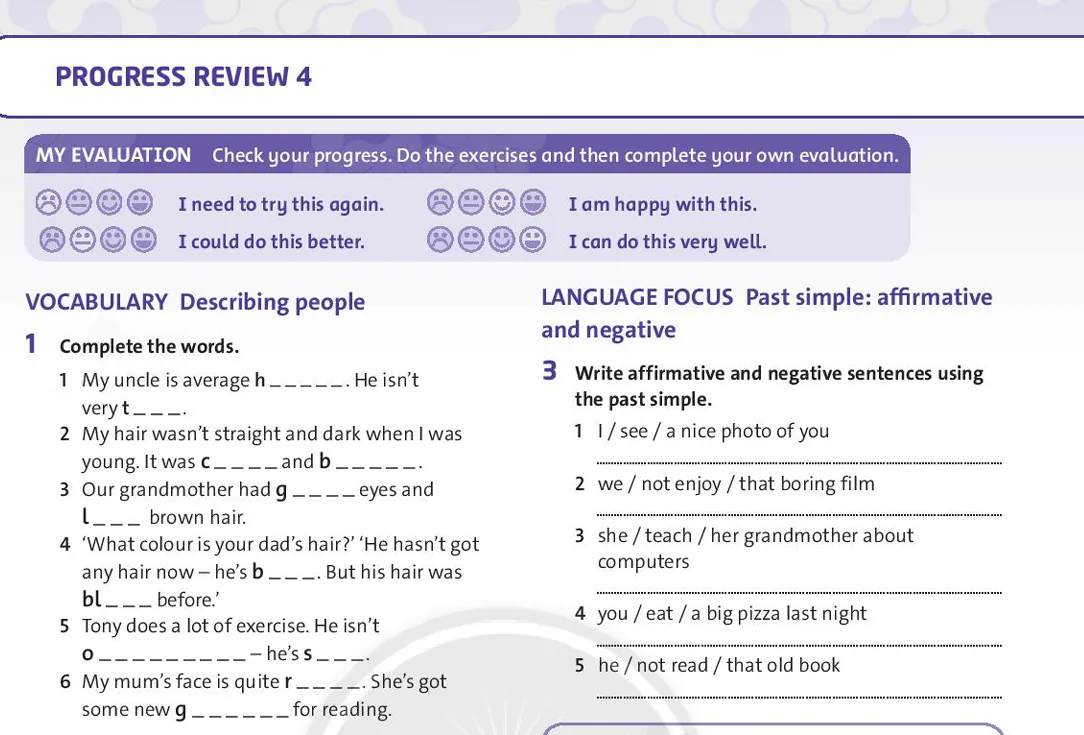
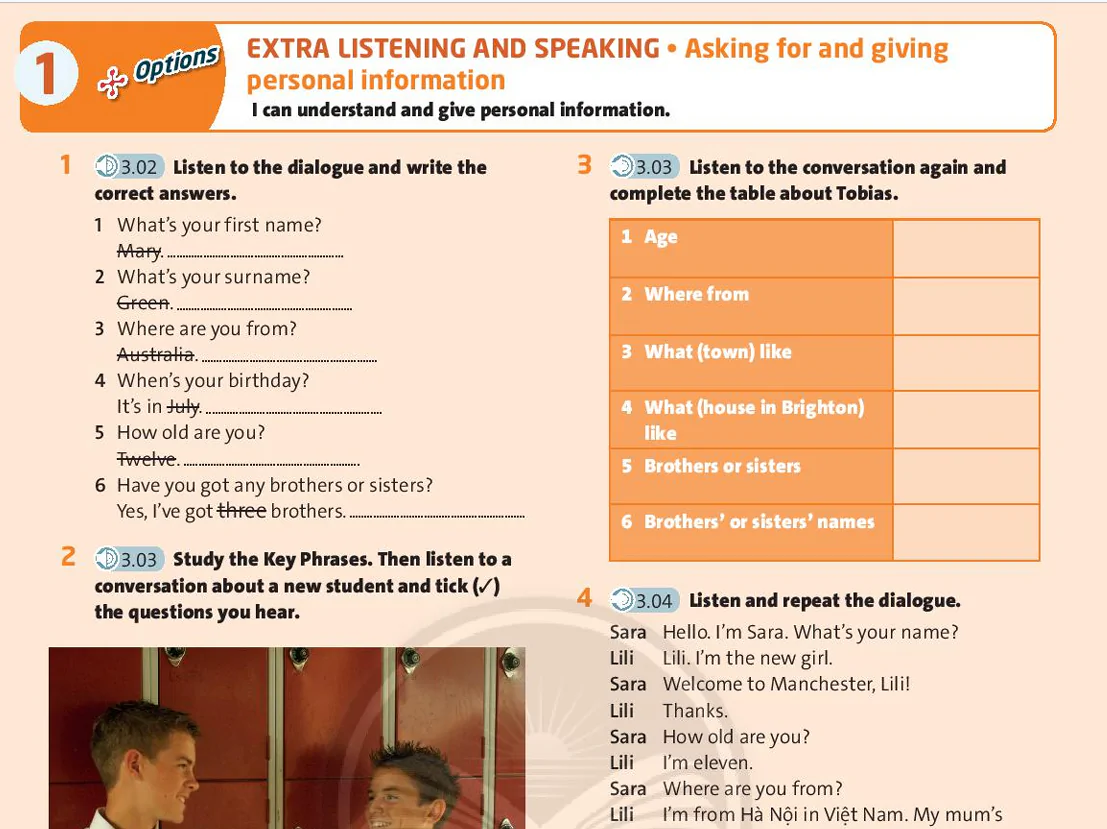
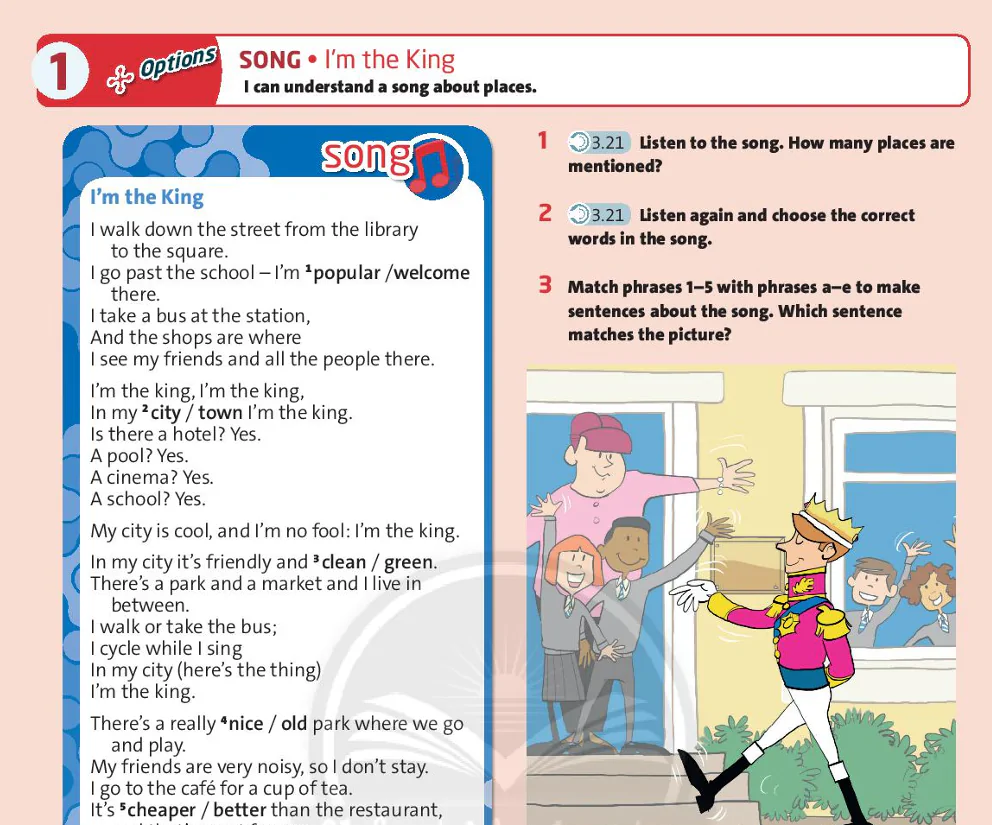
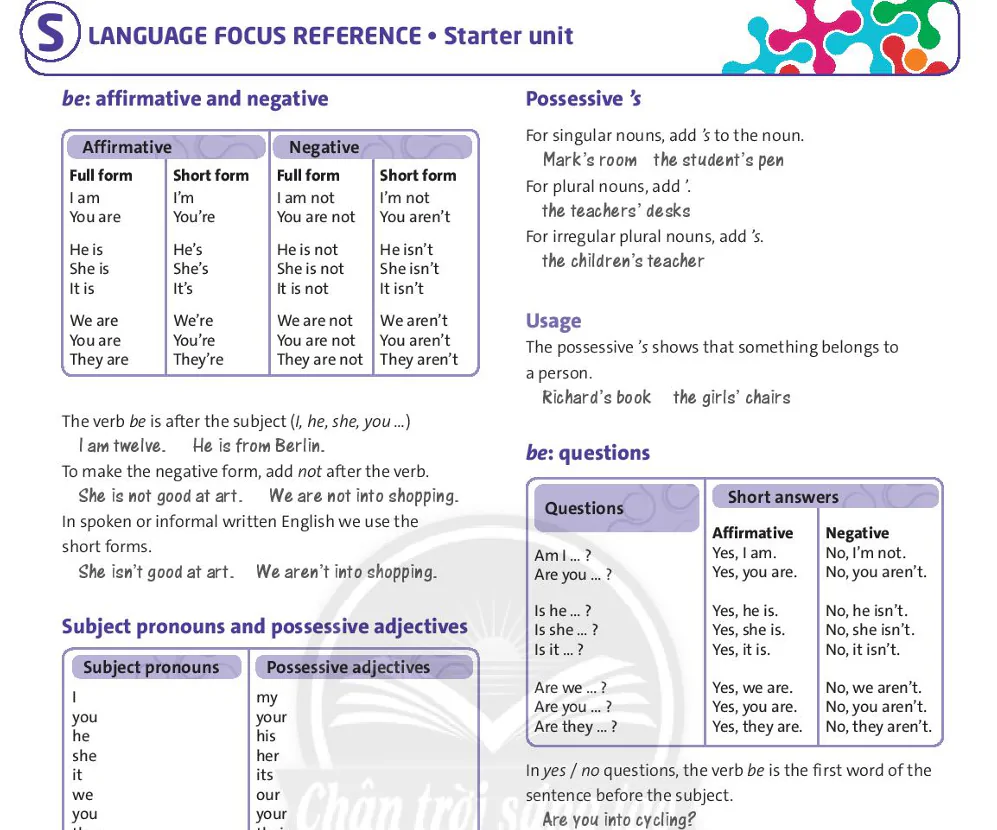
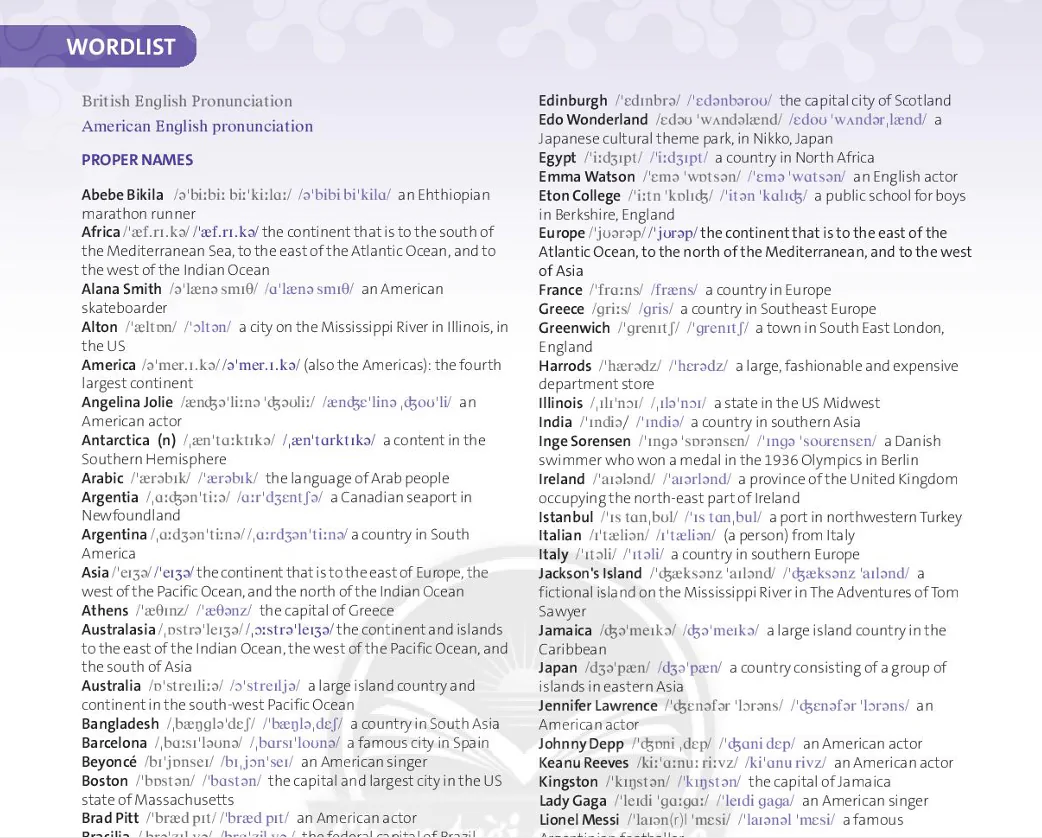



















Bình Luận
Để Lại Bình Luận Của Bạn